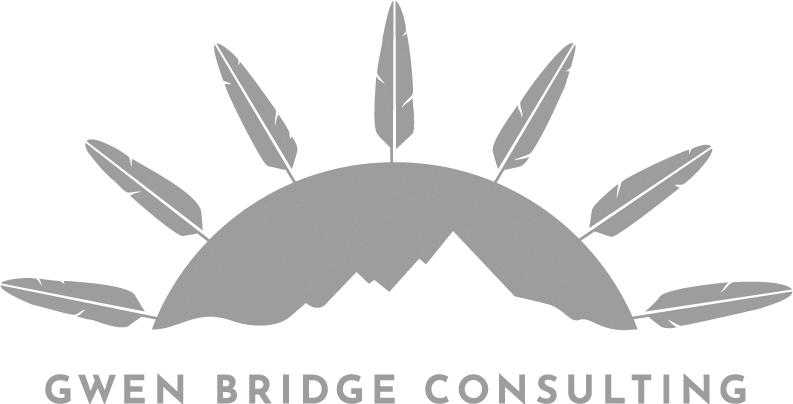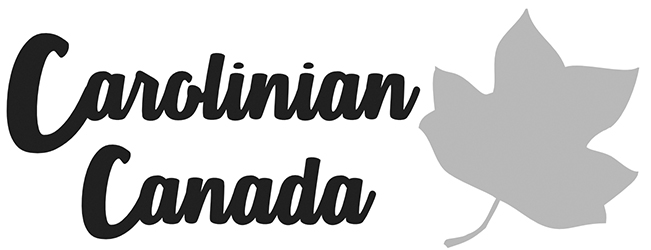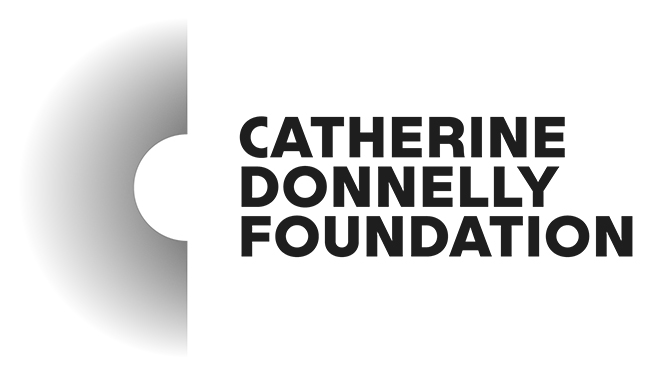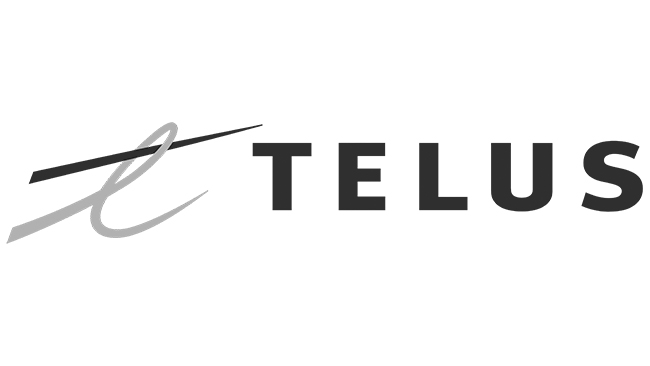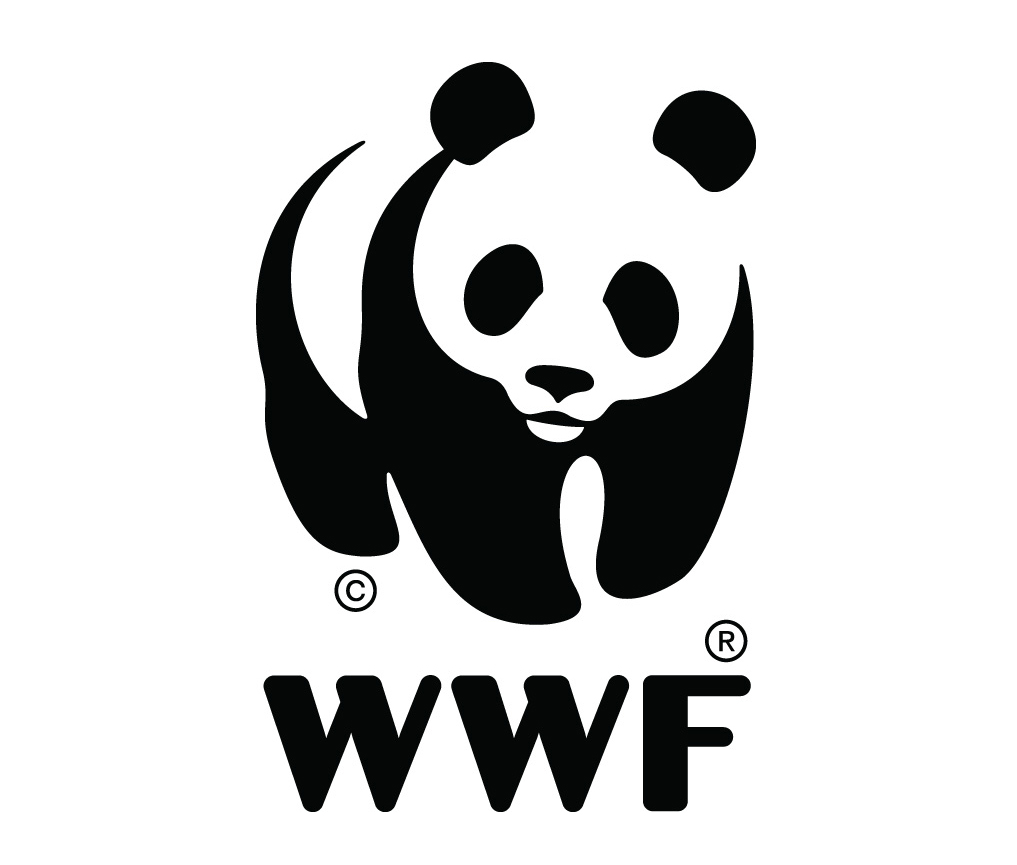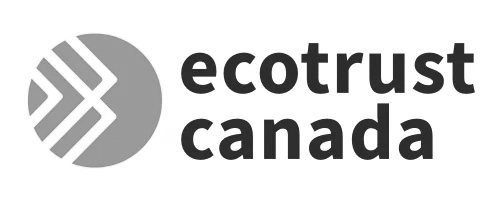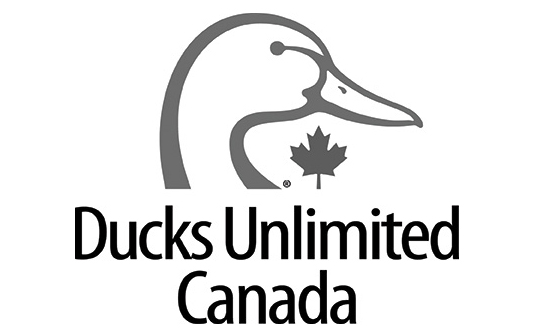Cultivating Capacity: A Scan of Needs & Resources for Indigenous-led Nature-based Solutions
April 30, 2024
A growing number of Indigenous Nations and communities are pursuing nature-based solutions (NbS) to advance their land relationship visions. Yet, capacity gaps often pose barriers to Indigenous-led NbS. The RAD Network is well-positioned to create tools and resources to help Nations overcome those barriers, but we also know that plenty of tools already exist. So, rather than duplicating efforts, we decided to explore the questions:
- What capacity-building offerings are already out there and where are the gaps?
- Who is working on what and how can the RAD Network foster collaboration?
- What capacity needs are Nations still facing and how can we best respond?
To begin to answer these questions, we did a desktop research scan and interviewed RAD Network partners and collaborators, including ENGOs working on capacity-building tools and programs, and individuals working on the ground in Community to advance NbS projects. This initial scan provides a jumping-off point for further work, including continued ‘ecosystem mapping’, groundtruthing, and co-creation of capacity-building tools to fill the gaps identified.
CLICK HERE to read the full report.
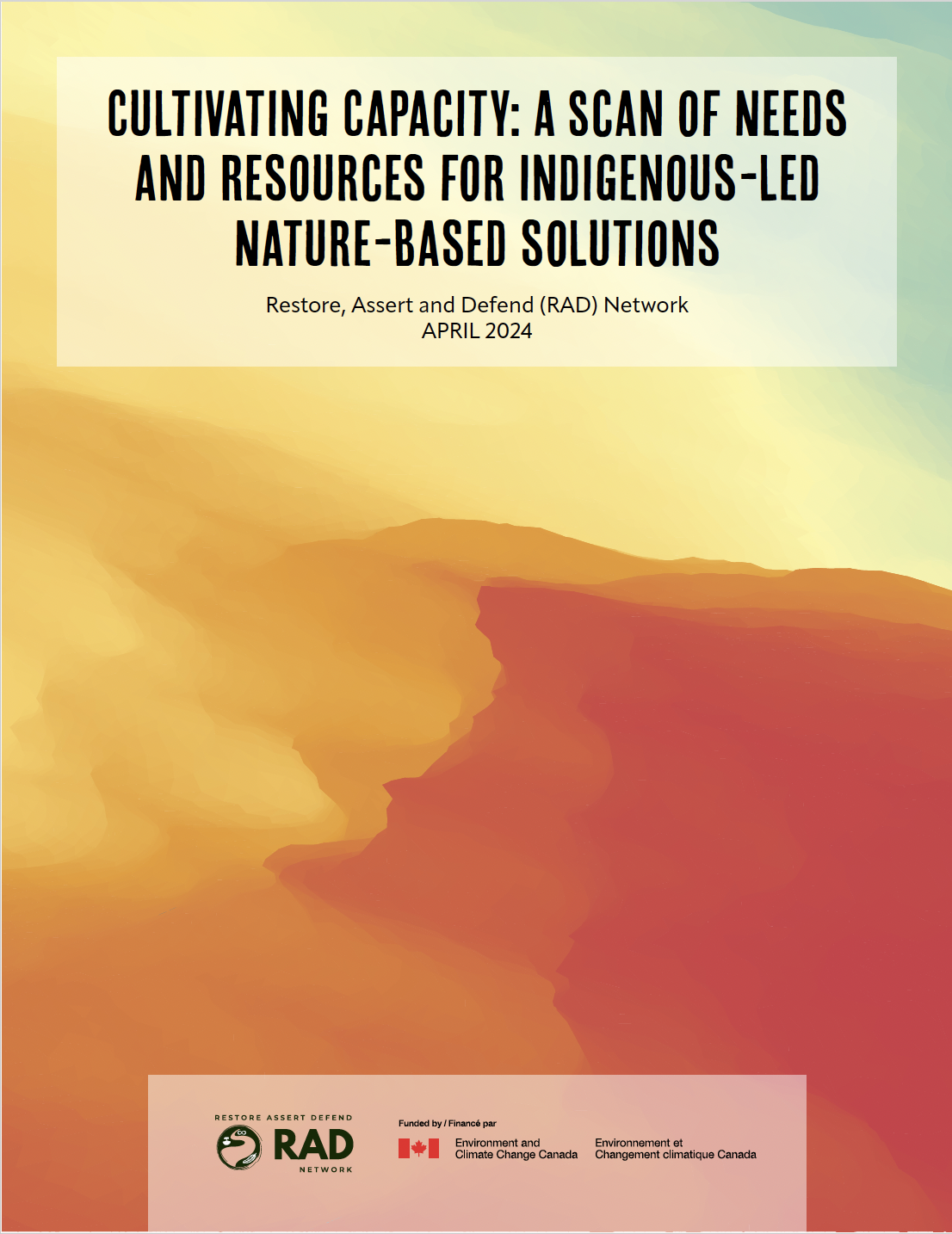
‘Scanning the Ecosystem’ and Compiling Tools
One outcome of our ‘scan’ is an updated compilation of capacity-building tools and initiatives, including introductory ‘toolkits’, emerging communities of practice, and a range of other approaches including support for strategic visioning, connecting the dots between carbon financing and IPCAs, and mediation with project developers, to name a few. Read about key initiatives in the report and check out the full, updated resource library at this link.
In the long term, we envision a searchable, user-friendly database with filters for region/jurisdiction and other aspects, to be determined with input from the network.
We’re grateful to our partners for helping to identify resources to include in the resource library. Please reach out with any relevant capacity-building tools, approaches and resources to add to our growing list by emailing radpartnership@gmail.com.
What We’re Hearing
Through the ‘ecosystem scan’ we heard from different groups about the gap that their tool or approach intends to fill, and we heard from community partners about their experiences and outstanding needs. As shown below, key capacity needs relate to knowledge and awareness, funding and resources, people and skillbuilding, data and measurement, collaboration and support for holistic objectives. These categories are intersecting and gaps typically can’t be addressed in isolation.
The outer circle includes overarching factors, highlighting that, to achieve the desired outcome of enabling Indigenous-led NbS, rights and jurisdiction must be addressed and enabling policy must be developed in tandem with increasing capacity. The visual also illustrates that Nations’ interests in nature-based solutions are not separate from governance and self-determination aspirations. Further, capacity gaps exist in Indigenous Nations and equally they exist among ENGO partners and other collaborators too who can struggle to adopt a decolonized lens in their collaborations.
Intersecting Capacity Needs for Indigenous-led NbS:
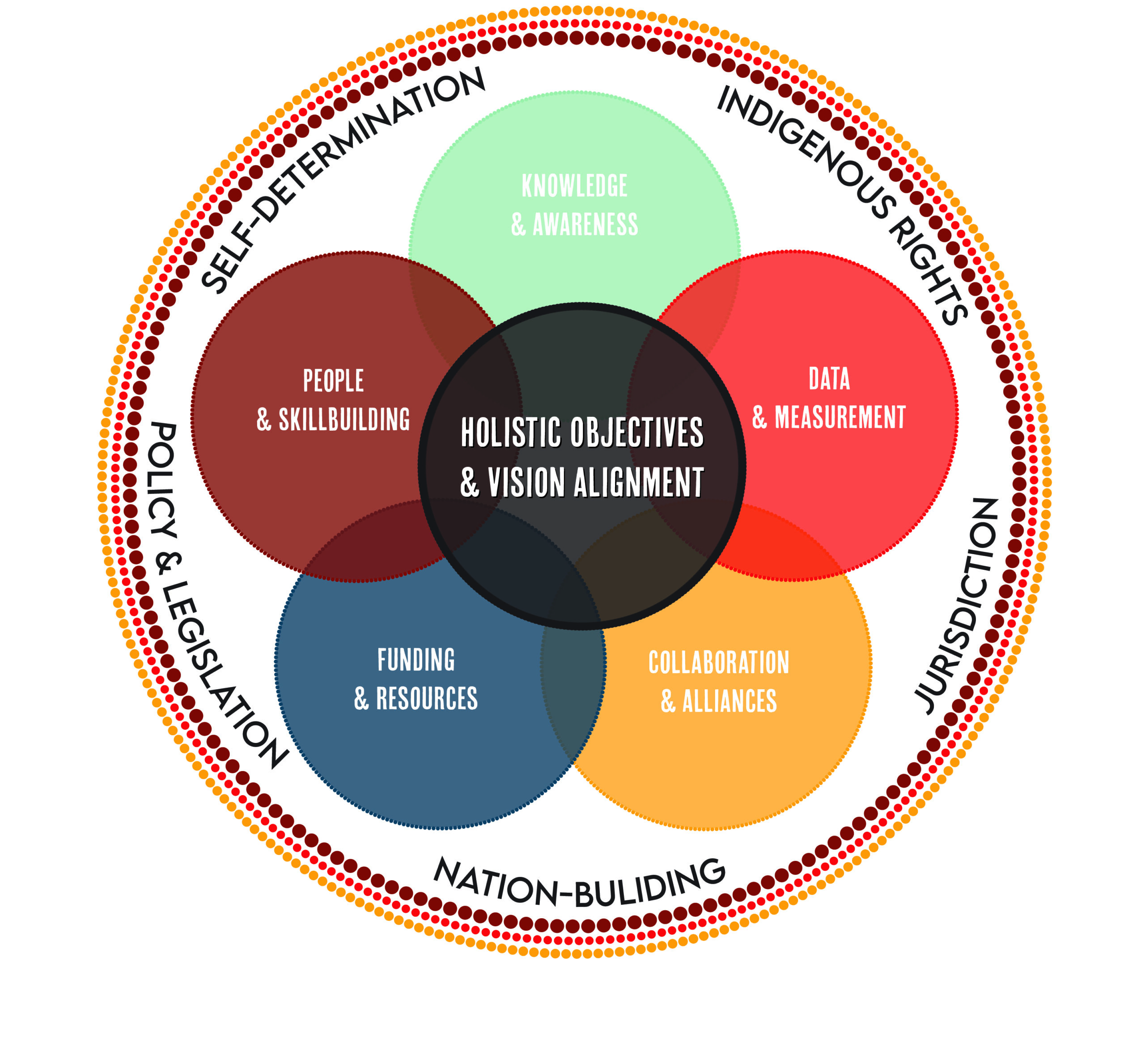
CLICK HERE to take a deeper dive into the intersecting capacity gaps with our interactive tool!
Hover over the visual to explore examples of capacity gaps and opportunities within the different categories, based on our research and network engagement.
Recommendations & Next Steps
Based on what we heard we developed some recommendations for funders, collaborators and ‘capacity-cultivators’:
- OVERARCHING: Create capacity-cultivating tools and offerings with attention to Indigenous rights, responsibilities and self-determination, and linked to enabling policy/advocacy.
- Knowledge & Awareness: Develop accessible, unbiased and relevant knowledge tools tailored to different audiences (e.g., leadership, Guardians, youth, practitioners) and varying purposes (e.g., decision-making supports and visioning tools in addition to ‘NbS 101’).
- Funding & Resources: Provide long-term, flexible public and philanthropic funding that responds to Nations’ self-determined visions and avoids conditions of competition between First Nations, Métis and Inuit. Advance capacity-building and enabling policy for conservation finance –including natural asset valuation and carbon financing– that protects Indigenous rights and advances Indigenous-led solutions (including IPCAs and Guardians).
- People & Skill-building: Build long-term community capacity through youth engagement, training-the-trainer approaches, credential programs and specialized skill-building for NbS project development. Broadly, avoid duplicating efforts and overburdening Nations with engagement requests. Ensure that a decolonized lens is held for collaborators with a clear commitment to undertake their own internal work to transform organizational approaches rooted in colonial thinking and increase their capacity to adopt participatory action framing.
- Data & Measurement: Ensure accessibility, avoid gate-keeping and siloed efforts, and go beyond measurement to build capacity for processing, assessing and utilizing carbon and ecosystem data. Prioritize and advocate for Indigenous data sovereignty.
- Collaboration & Alliances: Bolster capacity by supporting Nations to build networks of allies (e.g., with municipalities and universities) and foster alliance-building among Nations (e.g., regional alliances and overlapping territories) where there is interest and aligned visions. Invest in knowledge sharing/co-creation, network-weaving, and decolonized relationship building via hubs, communities of practice, and networks.
- Holistic Objectives & Vision Alignment: Develop integrative capacity-building efforts grounded in holistic Indigenous ways of knowing and Nations’ self-identified visions.
What’s Next?
This ecosystem scan fits into the RAD Network’s broader aims to foster collaboration and connect Nations to the tools they need to advance their visions. The ‘scan’ highlighted promising efforts to build partnerships and break down silos, such as new communities of practice. On the other hand, we continue to hear a need for greater collaboration and see an opportunity for RAD providing a network-weaving function, to connect aligned efforts and actors, shed light on existing tools, and co-create knowledge products in Ethical Space.
One way we activate connections is through online convening. In advance of Indigenous Peoples Day and the June Full Moon, we’ll be hosting a mid-June virtual gathering to connect and reflect on the topic of cultivating capacity for Indigenous-led Nature-based Solutions. Stay tuned for registration details!





